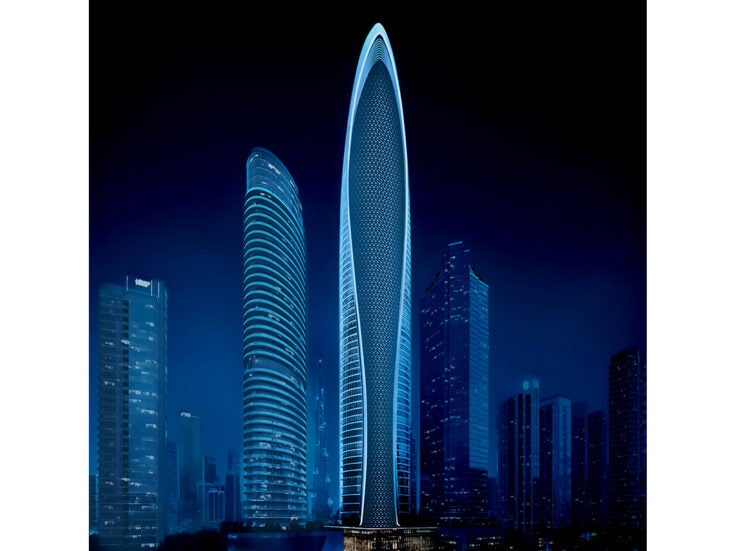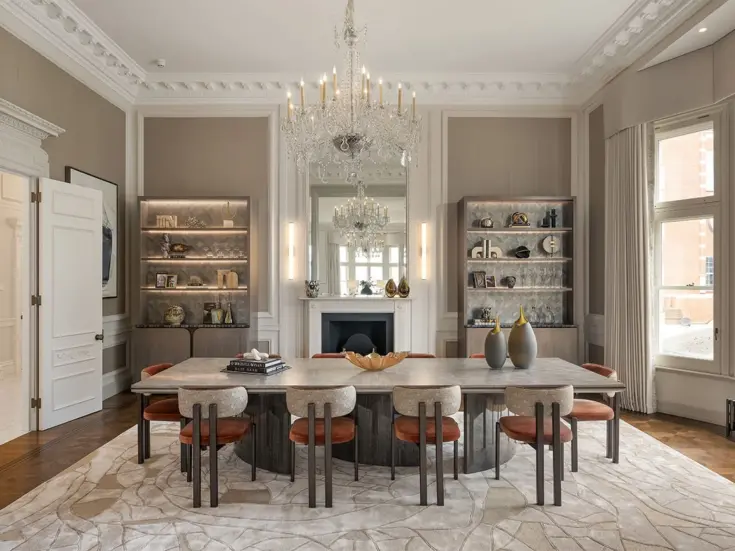
Sander Castles
Russian and Asian HNWs need more help buying property in the likes of Switzerland than estate agents provide. This is where Sergey Sander comes in, says Christopher Silvester
IN THE ESTIMATION of Sergey Sander, a 33-year-old Russian national with a successful property services business based in Switzerland, many wealth-management professionals, whether in Switzerland or London, find it hard to understand the mindset of BRIC high-net-worths. The culture of these foreign nationals is completely different, their demand for high-end services is becoming stronger, and they have a powerful influence on the local economy, from private bankers to property developers and landlords.
Sander Estates concentrates on what are called ‘turnkey’ services. ‘Normally it starts with a property,’ Sergey explains. ‘We do an individual property search, but in 90 per cent of accounts we also do education services, residence planning, alternative citizenship requests, the full range of services. This is actually the difference for Russians or Chinese or Arab nationals. If they come to foreign countries, they need all these services arranged, and they prefer a “one-stop shop”.’

Sander comes from Penza, a city in central Russia. His parents were engineers who were forced to become entrepreneurs following the break-up of the Soviet Union. Sergey graduated from the law school of his local state university, but when he relocated to Switzerland in 1999 it was very hard to find an opening that required knowledge of Russian legal practice or anything in connection with Russia. His first job was in information technology for the biggest media holding in Switzerland. He then had the idea for his own project, Russian Switzerland, comprising a web portal and magazine, which is now seven years old. ‘That was the first step: how I found the connection with members of the Russian diaspora in Switzerland.’
Of course, Switzerland has nothing to compare to London, where the Russian-speaking community numbers around 300,000. ‘Switzerland has only maybe 15,000 Russians, but I think the social circle is more interesting here. Switzerland is a very difficult location, a very closed country. There are no special immigration programmes, so the people who come here are the best selection we can expect, with much higher-net-worths.’ In 2006 Sander accepted an offer from one of the richest families in Russia to work exclusively for their family office. ‘In this period, because I lived in planes as well as in Switzerland, London and the South of France, I realised that most of services we provided were somehow related to real-estate issues.’

For that reason he found starting his own property-based services business remarkably easy. Sander moved back to Switzerland and established Sander Estates AG. His right hand in the business is his 31-year-old wife Evgenia, who was born in Germany, the daughter of a Russian military officer. She spent her childhood in Siberia and after university moved to Paris, where she studied at the ESCP business school and worked for L’Oréal for several years, gaining a sophisticated knowledge of the luxury-brands market.
Among the specialities of Sander Estates are luxury mountain retreats with outdoor or underground swimming pools
IT MAKES NO sense for Sander Estates to compete with the biggest English estate agents in the UK. ‘We are a small company and we would have no chance,’ he says. ‘We have only one advantage: to be smart, to be fast, and to provide a bigger range of services to private clients. Normally, if you go to one of the big estate agents they help you to find a suitable house or apartment. Once you buy it and you get your keys, their job is over.
‘For us it is just the beginning, because we have to care about security, about interior design, to find schools for the children, personal stuff. It takes us six to twelve months to finish our job. Normally, we charge for a package, depending on the size of the property. If it’s just a normal-sized property we can charge a fixed amount.’

While Sander finds it amusing to read articles about how some crazy Russian or Ukrainian has come to London and bought a property worth £100 million, he prefers to work ‘with normal people, whose requirements are normal’. In most cases his business is hunting for properties that cost, say, £1 million up to £10 million. ‘We know very well the requirements,’ he says. ‘For example, many people are not ready to relocate immediately, so if they have several houses abroad they’re not really interested in buying something that costs more than a couple of million pounds. It could be an apartment for themselves or their children.’ Every time Sander Estates works with a British estate agent, the fee charged is different. It ranges from zero to 60 per cent.
In Switzerland, the target demographic of his business is different. The pre-eminent requirement is a large swimming pool of around 25 metres, sometimes open-air and sometimes underground. ‘It’s very expensive to build and fill a full-size swimming pool on a mountain,’ he points out. Parking for up to twenty vehicles is another requirement, and sometimes parking for up to three helicopters. Properties such as this would start at around £10 million and could go up to £40 million. The most expensive element is the land.
‘England is a bigger country and it’s not a problem for you to go out of the city and find a plot of land,’ says Sander. ‘To find such land in Switzerland is very, very difficult and very expensive. There is also restrictive legislation in Switzerland. Switzerland has a very strict demarcation between EU countries and, let’s say, ‘third’ countries. (He doesn’t mean ‘Third World’, but the world beyond Europe.)
Once an EU citizen has qualified for residency, they can buy any property they like. It’s not the same for Russians or Ukrainians, who are not allowed to buy the biggest properties in Switzerland. It also has different taxation. From one side Switzerland offers you a very attractive taxation in the way of income or corporation tax — but if you own a property here you pay a property tax annually, in proportion to its size. In some cantons, like Vaud, you even pay a wealth tax.

‘Russians come to Switzerland for three main reasons: one is taxation, another is education, because of the Swiss private schools, and the third is security. We can still leave our cars open on the street here. We promote more than 300 properties for sale and around 75 rental properties. There are more than 10,000 properties available on the market in Switzerland, but in 95 per cent of cases you can’t offer these properties to foreign buyers because they only want the best properties in the best locations.’
There are two key trends Sander identifies. One is that it has become normal for wealthy people to have several properties all over the world. The second is the tendency towards all-inclusive properties. He puts this down to the fact that the quality of accommodation in Asian countries has improved so enormously in recent years that their wealthy citizens are used to living in beautiful residences with a spa, a swimming pool, restaurants — a 24-hour service. ‘In the Swiss market, in the last year, developers have started to build bigger, more beautiful residences with all the services a high-net-worth may require. The prices are crazy — up to £10,000 per square metre. The price is not for the property itself, but for the lifestyle.’
Some of his clients want to secure their assets in a safe country, but others are more interested in buying or renting in Switzerland or London or the South of France because of the lifestyle. ‘This is my back door to the market,’ Sander argues. ‘Otherwise, I would have no chance to become competitive with the biggest players. The need for personalised, high-end services gives us the chance to enter the market. We’re a small company but we’re working with the biggest Swiss banks for one reason only: the service we offer their clients. I think we shall have the same opportunity in London, because I think many wealth managers, developers and landlords in London are slow to adapt to this new culture of expectation.’
sanderestates.com
Christopher Silvester is deputy editor of Spear’s








